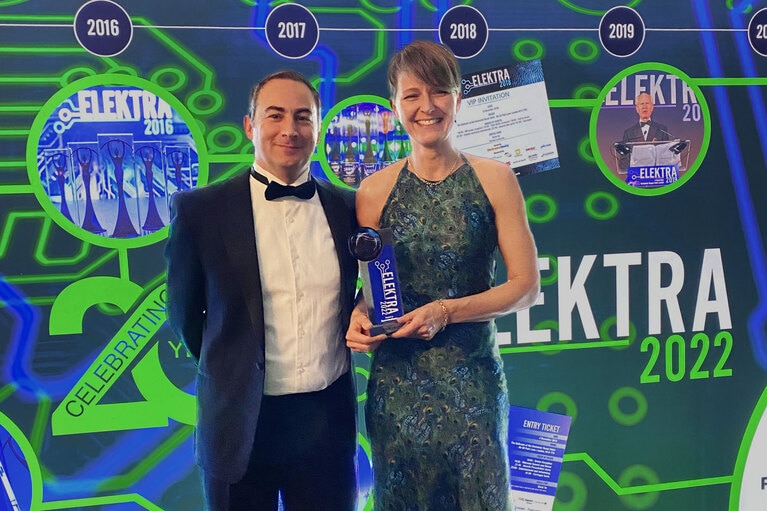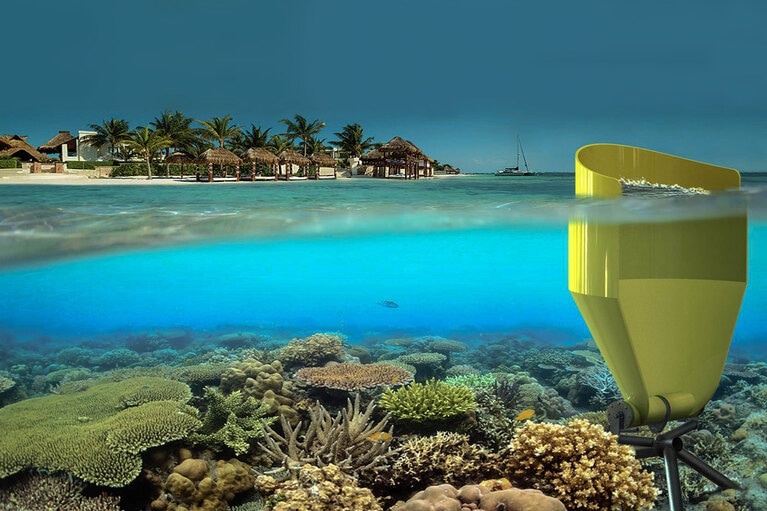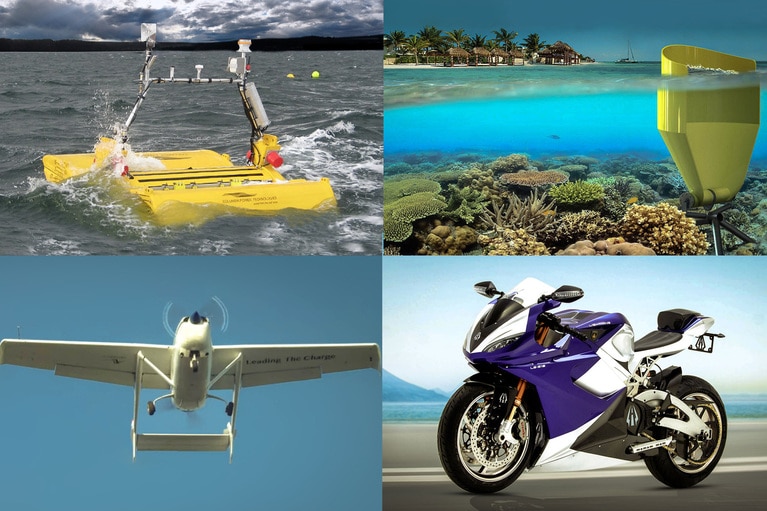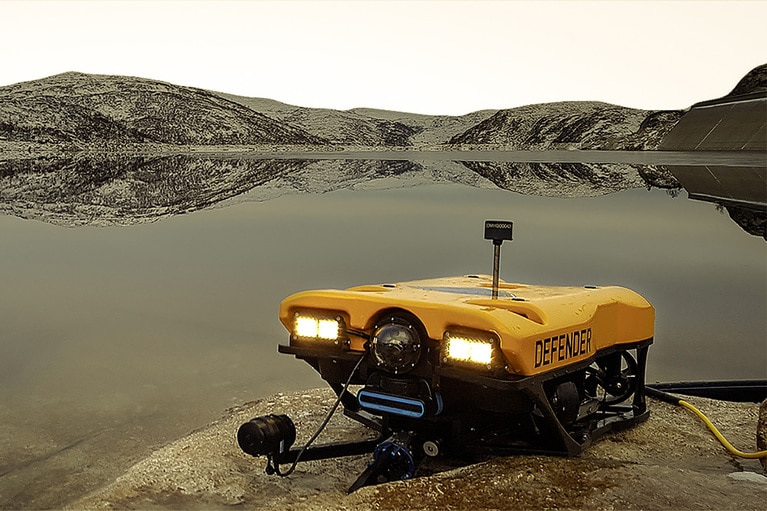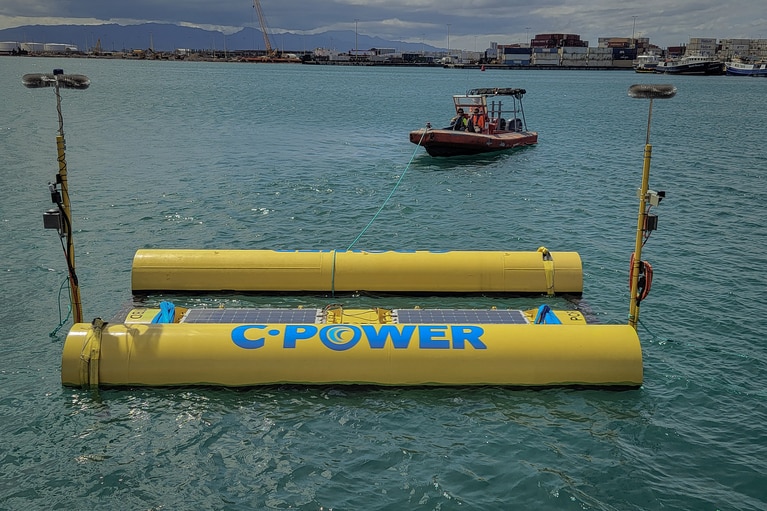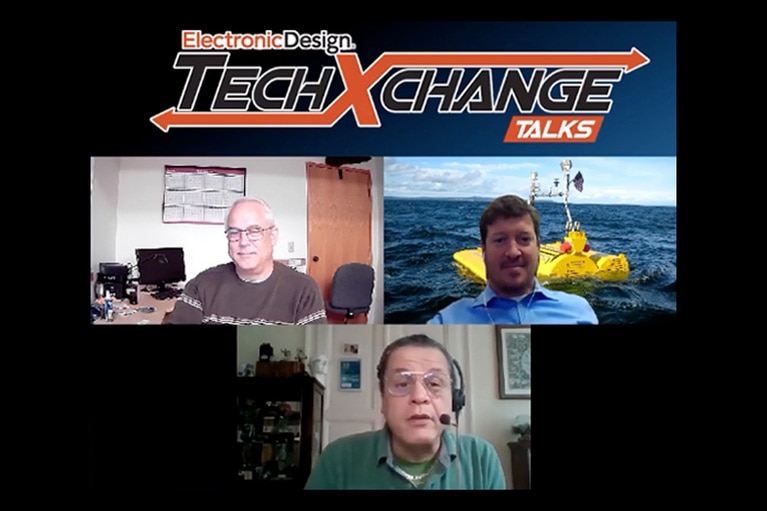
SeaRAY leverages Vicor tech to convert wave energy
C-Power provides reliable, cost-effective ocean wave energy generation and storage. Vicor power modules support efficient kinetic energy conversion
CCell is reversing global coastal erosion by accelerating the growth of new coral reefs using renewable energy and Vicor power modules
CCell, whose mission is to combat coastal erosion by working in harmony with marine habitats, won the 2022 Elektra Award for Power System Product of the Year in London – beating out 13 competing entries. CCell, based in the United Kingdom, is committed to mitigating coastal erosion by maintaining an eco-friendly approach to saving coastal environments and protecting communities around the world.
“It’s an honor to be selected for this award and be recognized for this work which we at CCell are so passionate about,” said Dr. Will Bateman, CEO of CCell. “We are fortunate to work with some very innovative partners and Vicor has been indispensable. They help us deliver the precise power needed to enable limestone to form enduring, sustainable digital living barrier reefs.”
CCell reefs protect the homes and livelihoods of such coastal communities, offering them long-term security against erosion and severe climate events. Over 51% of global coastlines are being eroded due to climate change, which is gradually undermining coastal communities and their livelihoods.
By reducing wave strength, the reefs also enable sand cover to be retained on their beaches, which in-turn drives more tourism for coastal communities. This is helps local hotels and small businesses to thrive sustainably creating a positive knock-on effect on the local economies.
CCell, using renewable energy and innovative power conversion technology, induces electrolysis of seawater to combat erosion and save communities.
Figure 1: CCell, using renewable energy and innovative power conversion technology, induces electrolysis of seawater to combat erosion and save communities and their livelihoods.
CCell uses Vicor’s Factorized Power Architecture (FPA) to manage the wide input voltage derived from wave and solar power sources and deliver the output voltage required for an optimum electrolysis process. This power module forms part of a platform, called CCell Sense, which also enables the remote real-time monitoring of marine ecosystems to restore habitats and the health of near-shore ocean environments.
CCell’s reef growing system induces the electrolysis of seawater to deposit calcium carbonate (limestone) on large steel frames which function as anodes and cathodes (electrodes) and give the new reef its early structure. The technique is revolutionary in that instead of hundreds of years, it takes just four months to produce incredibly strong limestone rock on which coral can grow.
Power for the CCell electrolysis process is generated by multiple sources. Some of it is drawn from conveniently-renewable resources courtesy CCell’s own wave-energy converter, which powers an electricity-producing hydraulic system with a paddle. Depending on wave conditions, this system can produce a range of voltage levels between 35V and 70V, which is then converted, controlled, and monitored by the electrolysis system itself. They also can leverage wind and solar power to generate power.
Regardless of the source, the amount of power delivered to the system must be finely controlled. To maintain the peak current of 10A and 50W of power required for each length of reef, CCell leverages FPA that integrates a pre-regulation module (PRM) buck-boost voltage regulator and voltage transformation module (VTM) current multiplier with fast transient response the PRM™ inputs unregulated voltage and outputs regulated voltage, which is used to drive the VTM™.
“The VTM is, alternatively, a current multiplier,” says Philip Simpson, a field application engineer at Vicor. “A VTM acts as though it’s effectively a DC-DC converter. The combination of PRM and VTM that CCell are using gives efficiencies well over 90 percent. It acts as an ideal transformer.”
Coastal erosion is a global problem and CCell is addressing in several countries. Currently CCell has projects sites along the Mexican coast, in Israel, the Maldives, and elsewhere. Future goals for CCell include a potential partnership with Cornell University to implement acoustics on the reef structures that would mimic the sounds of living, thriving reefs to help attract marine life to the project sites. Understanding how marine life interacts with new coral reefs is an important factor in evaluating the efficacy of their solution. CCell is committed to working in complete harmony with marine habitats.
SeaRAY leverages Vicor tech to convert wave energy
C-Power provides reliable, cost-effective ocean wave energy generation and storage. Vicor power modules support efficient kinetic energy conversion
Powering Innovation eBook: Volume 1 – Saving the environment
Technological breakthroughs to protect and preserve the environment
VideoRay drives safe, effective underwater exploration leveraging AI and today’s newest technologies
Vicor Powering Innovation podcast discusses the proliferation of ROV applications and how VideoRay is responding to new underwater missions
The best battery on Earth is free and it is powering the new Blue Economy
C-Power autonomous offshore power systems (AOPS) float in the ocean, capturing mechanical wave energy and converting it into usable power
